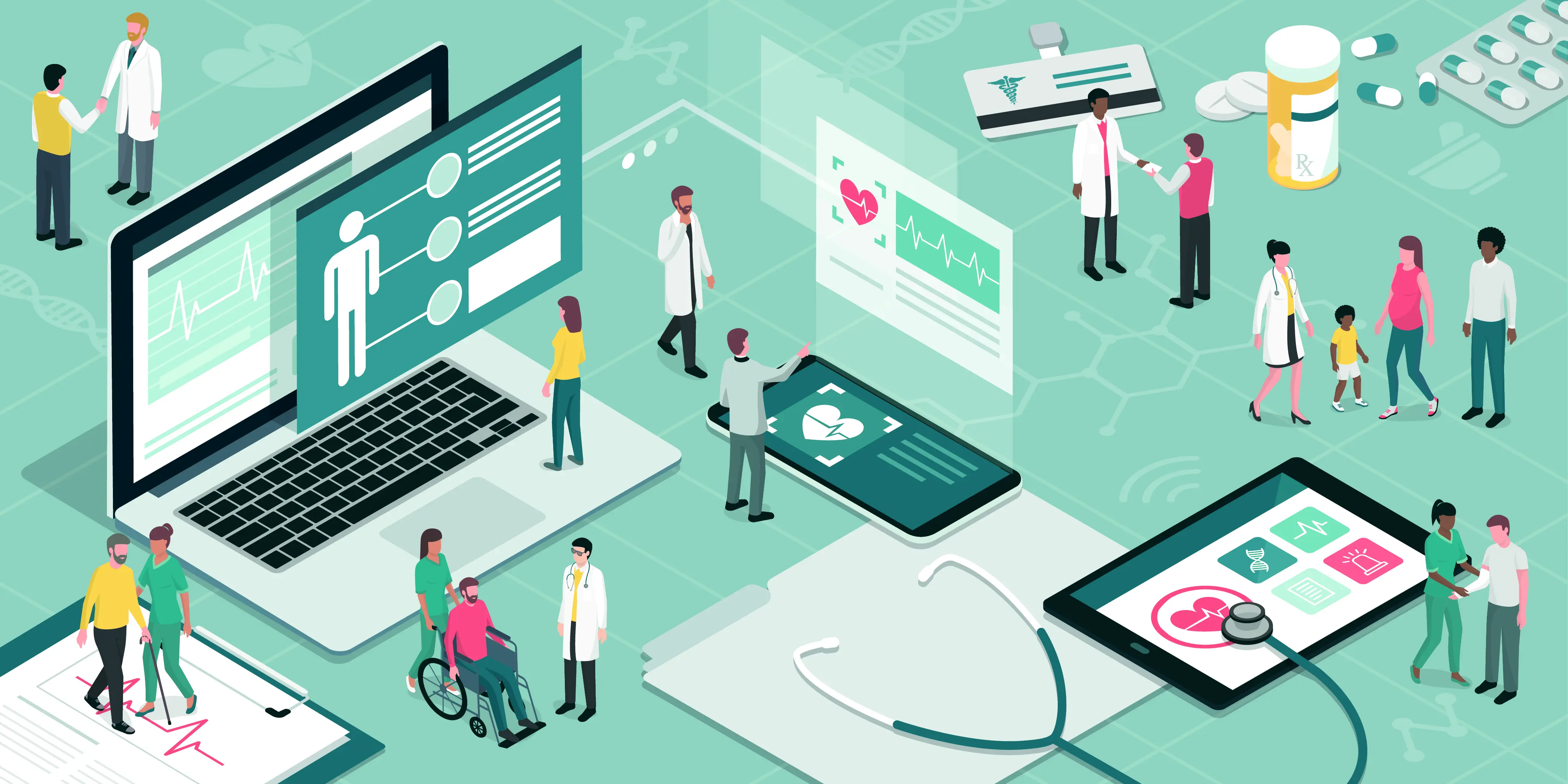
Digital Transformation in Healthcare: A Paradigm Shift
In recent years, the healthcare industry has witnessed a remarkable transformation driven by technological advancements. The integration of digital technologies and healthcare services has ushered in a new era of improved patient care, streamlined operations, and enhanced outcomes. This paradigm shift, known as digital transformation, holds immense potential for revolutionizing healthcare delivery systems worldwide. In this article, we will explore the key aspects, benefits, and challenges of digital transformation in healthcare and examine how it is reshaping the future of medicine.
The Power of Data and Analytics
Digital transformation has enabled healthcare organizations to harness the power of data and analytics to make informed decisions. Electronic Health Records (EHRs) have replaced cumbersome paper-based systems, allowing healthcare providers to access patient information instantaneously, facilitating faster diagnoses and treatment decisions. Moreover, the integration of artificial intelligence (AI) and machine learning (ML) algorithms with healthcare data has revolutionized diagnostic accuracy, predicting disease patterns, and enabling personalized treatment plans.
Telemedicine and Remote Patient Monitoring
The advent of telemedicine has significantly impacted healthcare delivery, especially in remote areas and underserved communities. Through video consultations, patients can connect with healthcare professionals from the comfort of their homes, reducing the need for unnecessary hospital visits. Additionally, remote patient monitoring devices, such as wearable sensors and IoT-enabled devices, allow healthcare providers to track vital signs, medication adherence, and disease progression in real-time. This not only improves patient outcomes but also reduces healthcare costs by preventing complications and hospital readmissions.
Enhancing Patient Engagement and Empowerment
Digital transformation has empowered patients by providing them with easy access to information and resources. Mobile health applications (apps) and patient portals enable individuals to manage their health records, track medications, and receive personalized health recommendations. Moreover, the integration of wearable devices and fitness trackers encourages proactive health management, enabling individuals to lead healthier lifestyles and prevent chronic diseases.
Streamlining Administrative Processes
The digitization of administrative processes has significantly streamlined healthcare operations. Automation of appointment scheduling, billing, and insurance claims processing has reduced administrative burdens, enabling healthcare professionals to focus more on patient care. Furthermore, digital platforms for collaboration and communication among healthcare teams enhance care coordination, ensuring seamless transitions and continuity of care.
Ensuring Data Privacy and Security
As the healthcare industry embraces digital transformation, ensuring data privacy and security becomes paramount. Healthcare organizations must implement robust cybersecurity measures to protect patient information from unauthorized access, data breaches, and cyber threats. Compliance with stringent regulations, such as the Health Insurance Portability and Accountability Act (HIPAA), is essential to maintain patient trust and confidentiality.
Challenges and Future Outlook
While digital transformation holds immense promise, it also presents challenges that need to be addressed. Integration of disparate systems, interoperability issues, and resistance to change from healthcare professionals are some of the obstacles that must be overcome. Additionally, ensuring equitable access to digital healthcare services for all segments of the population is crucial to prevent a digital divide.
Looking ahead, the future of healthcare is set to witness even greater advancements in digital technologies. The widespread adoption of technologies like blockchain for secure data sharing, the Internet of Medical Things (IoMT) for interconnected medical devices, and the use of virtual reality (VR) and augmented reality (AR) for medical training and patient education are just a few examples of the exciting possibilities on the horizon.
Digital transformation in healthcare is revolutionizing the way healthcare services are delivered, improving patient outcomes, and enhancing operational efficiency. The integration of data analytics, telemedicine, patient engagement tools, and streamlined administrative processes has transformed the healthcare landscape, making it more patient-centric, efficient, and accessible. While challenges exist, continued investment in digital transformation and collaboration between technology providers, healthcare organizations, and policymakers will pave the way for a future where advanced digital technologies are seamlessly integrated into every aspect of healthcare, ultimately benefiting patients and healthcare providers alike.


